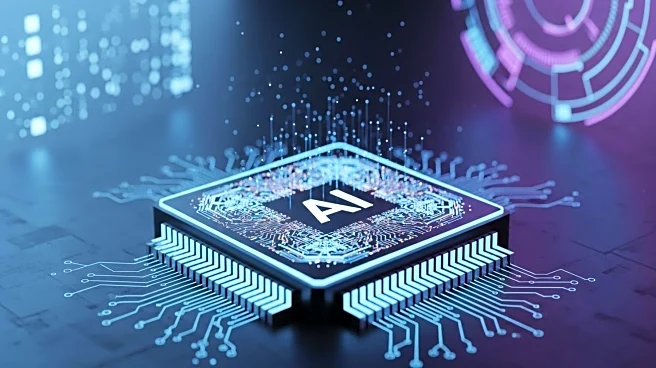What's Happening?
Anthropic has launched its latest AI model, Claude Sonnet 4.5, which is being hailed as the 'world's best' coding model. This new model is designed to significantly improve reasoning, math, and real-world tool use, marking a major advancement in AI capabilities. Claude Sonnet 4.5 can autonomously code for over 30 hours, a substantial increase from previous versions, and has been integrated into developer tools like GitHub Copilot and Microsoft 365 Copilot. The model is available at the same price as its predecessor, Claude Sonnet 4, and includes new features such as a Claude CLI, VS Code extension, and Claude Agent SDK, which allows developers to build custom AI agents.
Why It's Important?
The release of Claude Sonnet 4.5 represents a significant leap in AI technology, particularly in the realm of coding and software development. By enabling longer autonomous coding sessions and improving on complex task handling, this model could revolutionize how developers approach software creation and debugging. The integration of Claude Sonnet 4.5 into widely used platforms like GitHub and Microsoft 365 suggests a broad impact on the tech industry, potentially increasing productivity and efficiency. Additionally, the model's enhanced safety features and alignment improvements address previous concerns about AI behavior, making it a more reliable tool for enterprises.
What's Next?
As Claude Sonnet 4.5 rolls out, developers and enterprises are likely to explore its capabilities further, potentially leading to new applications and innovations in AI-driven software development. Competitors like OpenAI and Google may respond with advancements in their own AI models, intensifying the race for AI supremacy. The ongoing integration of AI into business processes could also prompt discussions on ethical AI use and the need for regulatory frameworks to ensure safe and fair deployment.
Beyond the Headlines
The introduction of Claude Sonnet 4.5 highlights the growing trend of AI models becoming more autonomous and capable of handling complex tasks over extended periods. This shift could lead to a reevaluation of the role of human developers, as AI takes on more of the coding workload. Additionally, the model's ability to maintain focus and coherence over long tasks may influence how AI is perceived in terms of reliability and trustworthiness, potentially impacting its adoption across various industries.








